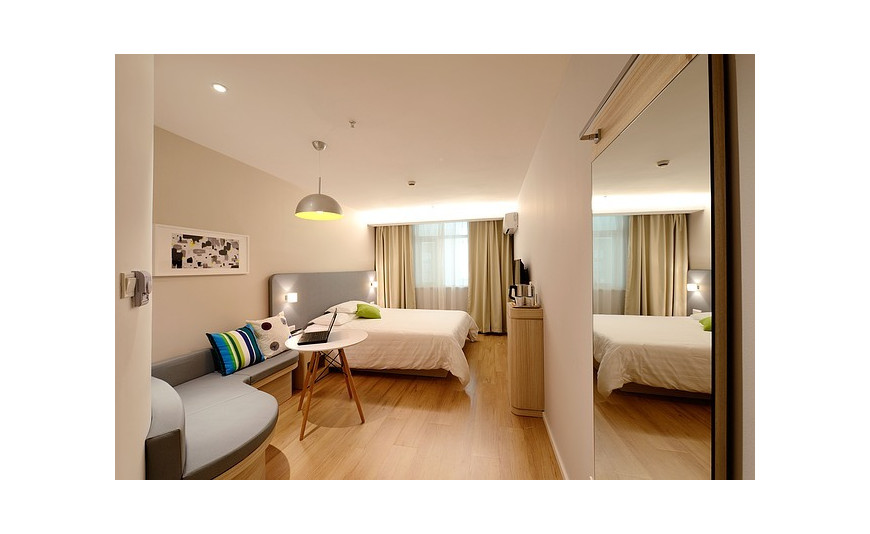Hotels and conavirus: how to clean and disinfect your establishment
- 20 Mar 2020
- News from the hotel industry
- 0 Comments

While hotels are still not affected by the closure measures announced in connection with the conavirus outbreak, their restaurants and bars are. But room services may continue.
There are more than 10 millions hotel rooms in Europe, and although some hotels will close during the epidemic, some establishments will continue to look after their customers.
We expect restaurants and breakfast rooms to close and room service to be introduced systematically.
The World Health Organization (WHO) and the European public health authorities are monitoring the evolution of the coronavirus and, as hotels, it is necessary to for you to know how to prevent the spread of the virus and how to deal with suspected or confirmed cases within the establishment. Here are some recommendations.
In addition to following the usual hygiene guidelines and public health advice, experts in the prevention and control of viral infections suggest that it is essential to organise a "crisis management team", consisting of the hotel manager and certain department heads (such as cleaning, food and beverage, customer service) and the consulting company, which will be responsible for dealing with suspected or confirmed cases. It is essential to review each of the usual cleaning and disinfection procedures to ensure the use of correct products and sufficient supplies. In crisis situations, management also includes ensuring a minimum two-week supply of disinfectants and disposable gloves.
Experts recommend updating the team's training in POSI (Prevention of Infection Spread) procedures through practical exercises; providing a brief overview of the disease and its spread. In return, be prepared to communicate to guests the importance of good personal hygiene and be prepared for the possibility that a guest or staff may be confined inside the hotel during a quarantine period: this involves knowing how to provide food and drink, sheets, towels or anything else they need.
What to do if a case is suspected or confirmed
If a guest is suspected or confirmed to have coronavirus, they may need to stay in their room. Hotel staff should contact a doctor and follow the instructions and immediately activate POSI procedures, also following the recommendations of the local public health authorities.
Cleaning and disinfection of public areas
Experts recommend following the usual cleaning plan, but concentrate on the contact surfaces :
Use 1000 ppm chlorine or other chemicals...
Use specific clothing, sponges and bags, e.g. identified/coded by colour to avoid cross-contamination.
For furniture with soft surfaces such as sofas, mattresses, use other cleaning procedures such as steam cleaning.
Increase the frequency of cleaning and disinfection.
Rooms where people have been infected
Before entering the room, it is necessary that the person in charge of cleaning protects himself/herself with gloves and in addition to disinfecting with 1000 ppm chlorine, using sprays on soft surfaces and avoiding cross-contamination, it is important to know :
Bedding should be washed at 65°C for 10 minutes or 71°C for 3 minutes.
If the above procedures are not followed, it is recommended that hotels clean thoroughly at night. Taking into account that guests will be present, they recommend preparing a list of all surfaces that need to be disinfected, which should include: all contact points at the reception, offices, bars, restaurants, stairs, corridors, elevators, pool areas, gym, sauna, changing rooms, public bathrooms, terraces, etc.
Plan the staff that will be involved, assign tasks by zone, assign equipment.
Ensure that all personnel are properly trained.
Make sure you have all the necessary materials and chemicals.
Inform clients (by means of posters) that a thorough cleaning will be carried out, and that there will be no access to public areas during this period: it will be carried out at night, while the clients are in their rooms.
As for the execution of the cleaning, the process described above is applied and added :
Only trained staff should participate.
Ensure that all clients are in their rooms.
During the execution of the task, delimit the affected areas with cones, signs or other means to prevent access by non
Dispose of gloves and other disposable clothing in a garbage bag.
There is also the possibility of using misting. This procedure consists of closing the hotel for a few days and a thorough cleaning:
The curtains should be washed at 65ºC for 10 minutes or 71ºC for 3 minutes.
An external company can be hired to carry out the "misting" to further disinfect all areas.
It is vital to pay special attention to hard-to-reach corners; carpeting throughout the building; air conditioning system
Points to go to in restaurants, bars, etc.
Disinfectant gel dispensers at entrances
Provide food to all sick guests in their rooms
Increasing the frequency of disinfection of toys and utensils
The usual cleaning plan should be followed in infantile areas, but more focus should be placed on contact surfaces.
Increase the frequency of cleaning and disinfection.
Eliminate glass cups; only disposable plastic cups are allowed in swimming pools.
The role of staff and external communication
Given the magnitude of the situation, staff have an obligation to be aware of their crisis management responsibilities and to be trained in POSI procedures and, while this is obvious, to have good personal hygiene, which involves frequent hand washing, especially when they have been in contact with sick people or in contaminated areas. The hotel should also provide the guest with information on how to stay calm and practice good hygiene.










0 Comments